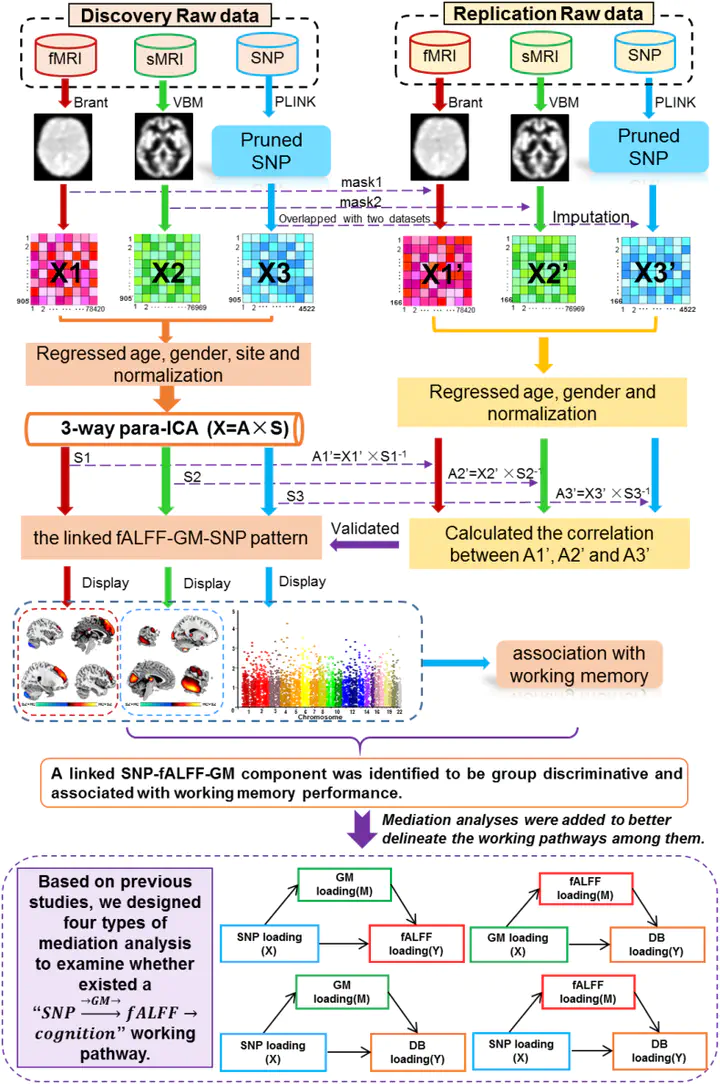A schizophrenia-related genetic-brain-cognition pathway revealed in a large Chinese population
 Schematic illustration of the whole analysis
Schematic illustration of the whole analysisAbstract
In the past decades, substantial effort has been made to explore the genetic influence on brain structural/functional abnormalities in schizophrenia, as well as cognitive impairments. In this work, we aimed to extend previous studies to explore the internal mediation pathway among genetic factor, brain features and cognitive scores in a large Chinese dataset. Gray matter (GM) volume, fractional amplitude of low-frequency fluctuations (fALFF), and 4522 schizophrenia-susceptible single nucleotide polymorphisms (SNP) from 905 Chinese subjects were jointly analyzed, to investigate the multimodal association. Based on the identified imaging-genetic pattern, correlations with cognition and mediation analysis were then conducted to reveal the potential mediation pathways. One linked imaging-genetic pattern was identified to be group discriminative, which was also associated with working memory performance. Particularly, GM reduction in thalamus, putamen and bilateral temporal gyrus in schizophrenia was associated with fALFF decrease in medial prefrontal cortex, both were also associated with genetic factors enriched in neuron development, synapse organization and axon pathways, highlighting genes including CSMD1, CNTNAP2, DCC, GABBR2 etc. This linked pattern was also replicated in an independent cohort (166 subjects), which although showed certain age and clinical differences with the discovery cohort. A further mediation analysis suggested that GM alterations significantly mediated the association from SNP to fALFF, while fALFF mediated the association from SNP and GM to working memory performance. This study has not only verified the impaired imaging-genetic association in schizophrenia, but also initially revealed a potential genetic-brain-cognition mediation pathway, indicating that polygenic risk factors could exert impact on phenotypic measures from brain structure to function, thus could further affect cognition in schizophrenia.